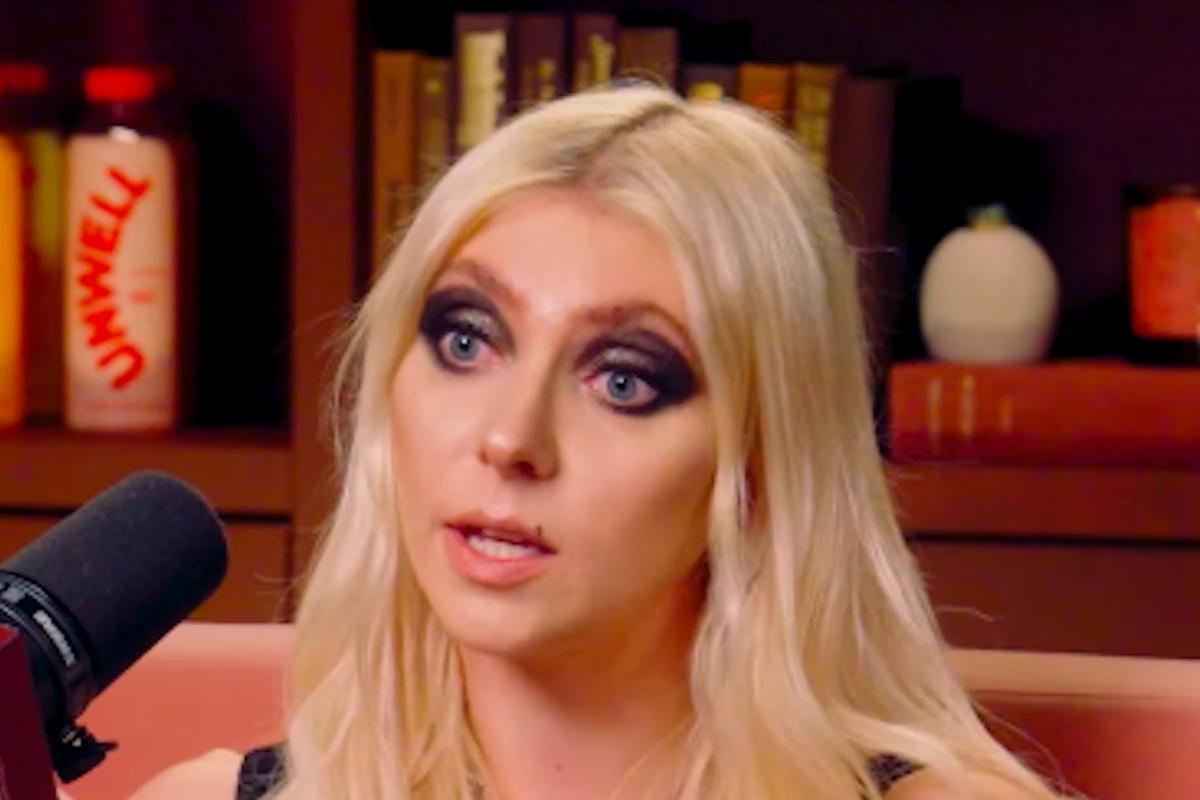-
Feed de Notícias
- EXPLORAR
-
Páginas
-
Blogs
-
Fóruns
How The Pretty Reckless' Taylor Momsen Overcame Depression

What Helped The Pretty Reckless' Taylor Momsen Overcome Depression + Substance Abuse
The Pretty Reckless' Taylor Momsen explained what helped her overcome the depression and substance abuse issues she dealt with a few years ago on the Call Her Daddy podcast.
The singer was the featured guest in the new episode of the podcast hosted by Alex Cooper, which came out today (Nov. 5). They covered a variety of topics from Momsen's acting career, how she got out of Gossip Girl to pursue music and the challenges she faced due to people not taking her seriously along the way.
Things took a darker turn when the vocalist described the long bout of depression she went through following the deaths of her idol Chris Cornell in 2017 and her longtime friend and producer Kato Khandwala a year later.
"That was the nail in the coffin for me," Momsen recalled. "It was a giant one-two punch because they were not that far apart from each other. I just went off the rails, I didn't handle that well. I got very heavy into substance abuse and this cloud of depression that I couldn't shake."
How Did Taylor Momsen Get Through the Depression?
Momsen admitted she mentally got to a place where she had given up and felt there was no longer a point. And even though she had a support system, she shut them out and isolated herself and became full of shame as a result.
"I had to make a very conscious choice at a point where I was either going to live or I was going to die and I had to either stop everything I was doing and get my life together, or this was going to kill me. I luckily chose to move forward but it was that serious," she shared.
What made it even worse for her was that music — the main love in her life — was making her pain worse rather than helping it. She couldn't listen to Soundgarden because of the pain over Cornell's death and she couldn't listen to The Beatles because they reminded her of Khandwala.
It was time that ultimately helped her.
"Eventually I got to a place where I could start listening to records again," the singer acknowledged. "I very calculatedly went, 'Where did I fall in love with this? How do I find myself again?' So I started at the very beginning, which was The Beatles."
From there, she listened to all the bands she fell in love with growing up and then finally found peace in Soundgarden's discography again. And then she wrote The Pretty Reckless' fourth album Death By Rock and Roll.
What Is Taylor Momsen's Advice for Someone Dealing With Depression?
Momsen explained that as she came out of the depression, she realized that the feeling of missing someone never goes away but that it gets less intense with time.
"At the end of the day, [Death By Rock and Roll] is very hopeful. It starts off very dark and bleak but there's this positive turn toward the end of it that there is light at the end of this tunnel that seems impossible and never-ending," the vocalist reasoned.
READ MORE: Soundgarden Reveal Singers for Rock and Roll Hall of Fame Induction
"If you can just wait it out, you will get to the other side... It does get better. And the fucked up thing about that is when people say that to you and you're in it, you want to punch them in the face."
What Are The Pretty Reckless Up to in 2026?
It was just announced that The Pretty Reckless will open for AC/DC again on their 2026 tour, so Momsen and the band will be busy on the road. She also teased that there'll be more new music to follow their latest single "For I Am Death" and their new Christmas EP Taylor Momsen's Pretty Reckless Christmas.
Check out the full podcast episode below.
If you or someone you know is struggling with mental health, help is available through the Substance Abuse and Mental Health Services Administration website. To speak to someone on the phone, dial 1-800-622-HELP (1-800-622-4357) or send a text message to 1-800-487-4889.
The Pretty Reckless' Taylor Momsen Discusses Overcoming Grief + Substance Abuse on 'Call Her Daddy'
What 25 Rockers Have Said About Getting Sober or Quitting Drinking
Here is a look at what 25 big-name rock and metal artists have said about their sobriety journey including how they got there and what they have pledged to do with their lives since that time.
Gallery Credit: Rob Carroll


